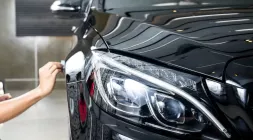How to Extend the Life of Your Car
Check out to know how to make your car's life last longer.
Nothing in the world is free and almost everything is gaining price by the minute. This is why a lot of people care for the things that they have and try to use it as much as possible before buying a new one. This is a prudent way to live and it is important to learn how to care for your things if you don’t want to keep spending on the same thing. This is especially if your budget is much more appreciated when allotted for another purpose.
While some things are actually meant to be disposable, there are also entities that you spend on so much that you can’t consider disposable. These are the objects that if you don’t tend to properly, you would end up having to pay a hefty amount for the repair; and this is something that we all try so hard to not result.
One good example is cars or any type of four-wheeled vehicle. A lot of us often don’t get cars just be sleeping overnight, instead we work day in and day out to be able to afford just the mere down payment. So it really can’t be helped if you see some car owners treating their vehicles as their “babies” and take care of them so much. If you wanted to prolong the lifespan of your car, then you could result in some caring measures that will help take care of your car to extend its service life. Don’t worry, you won’t have to do what those car-daddies on social media do to take care of your car, all you need to do is take our advice from this list below, brought to you by Philcarnews.com.
1. Refer to the manual
This is the most basic and the most obvious way to take care of your car. In order to prolong your car’s life, you would need to know its limitations. Where else is the better source of information to recognize your car’s limitations than the manual that it came with, right? If you keep to the car’s recommended maintenance schedule and attend to every wear-and-tear part that needs replacing as per prescribed by the manual, then your car should be fine. Also if you do your part of maintaining the car then there is a high chance that you will be able to fully benefit from your car’s manufacturer’s warranty.

The car's owner manual is the most basic and the most obvious way to take care of your car
2. Be aware of the fluid levels
Your car’s fluid is like the fluids in your body - yup, it is on that level of importance. This is why you should check your fluids every now and then, especially since not all of them can deplete or run out at the same time. Here are the fluids that are necessary to run your engine.
-
Oil
-
Transmission Fluid
-
Power-steering fluid
- Brake Fluid
If you're having a hard time figuring out when was the last time you checked under your hood then make it a habit to do a quick check when you gas up. Your car may be safe from leaks at the moment but developing this habit will help you identify any early signs of leaking by checking the fluid levels on a regular basis.
Also, plastic tanks are used in cars for a reason. It’s so that you’ll be able to see through the container and perform a thorough visual check on the content. With this, you’ll be able to see if the color changed and if there is a dipstick attached to the cap you can use it to check the consistency of the fluid. You can also easily see if there are contaminants that shouldn’t be in your car’s fluid tank.

Your car’s fluid is like the fluids in your body - it is on that level of importance
3. Inspect your Brake Pads
Take note of the thickness of your brake pads and do not neglect if you notice that they are close to reaching the metal. Once this happens, it will damage your brake rotors. The brake rotors are the discs that help slow down and stop your car when you step on the corresponding pedal. This could also do quite an amount of damage to the car’s calipers so that’s like two birds with one stone but in a very negative manner. These two auto parts mentioned are priced quite high in whichever auto shop you go to, so it would save you a substantial amount of money if you just pay more attention to your brake pads.

Take note of the thickness of your brake pads and do not neglect if you notice that they are close to reaching the metal
4. Heat Up Your Engine First
Before you take to your daily drive, consider starting the car and just keep it roaring for a few minutes. Then drive off slowly until it catches up to its operating temperature that is also known as the closed loop. This lessens the stress inflicted on the engine because the oil is still thick and cold.

Before you take to your daily drive, consider starting the car and just keep it roaring for a few minutes
5. Change fluids
Are you aware that you should be flushing out these particular fluid types from your car in every 2 years? These fluids are the ones for power-steering, brake fluid, and the cooling system. 2 years is the generally recommended frequency for changing and topping off these vital car fluids but there are instances that you're manual may suggest a few months earlier or a few months later. Contemporary cars that are manufactured today are often built to have longer intervals between changes and top-offs to maximize efficiency and savings.

Two years is the generally recommended frequency for changing and topping off these vital car fluids
6. Take Care of Your Tires
Taking care of your car’s rubber requires more than one step or procedure. The tires are one of the parts that contribute a lot to the safety and dependability of your vehicle. Keeping them always in check shouldn’t be compromised – or you would also be compromising you and your passengers’ safety. Proper tire care involves wheel alignment, correct tire pressure, and tire rotation.
These procedures can be done at home only if you are skilled and you know what to do or if you have the proper tools. DIY tire care is often preferred by many to cut costs but heading out to get help from licensed professionals and spending a bit for maintenance won’t be so bad compared to having your tires blow out in the middle of the highway with snappy traffic.
>>> Click to get more helpful tips and advice for your car maintenance
Tag:
car maintenanceRECENT ARTICLES









